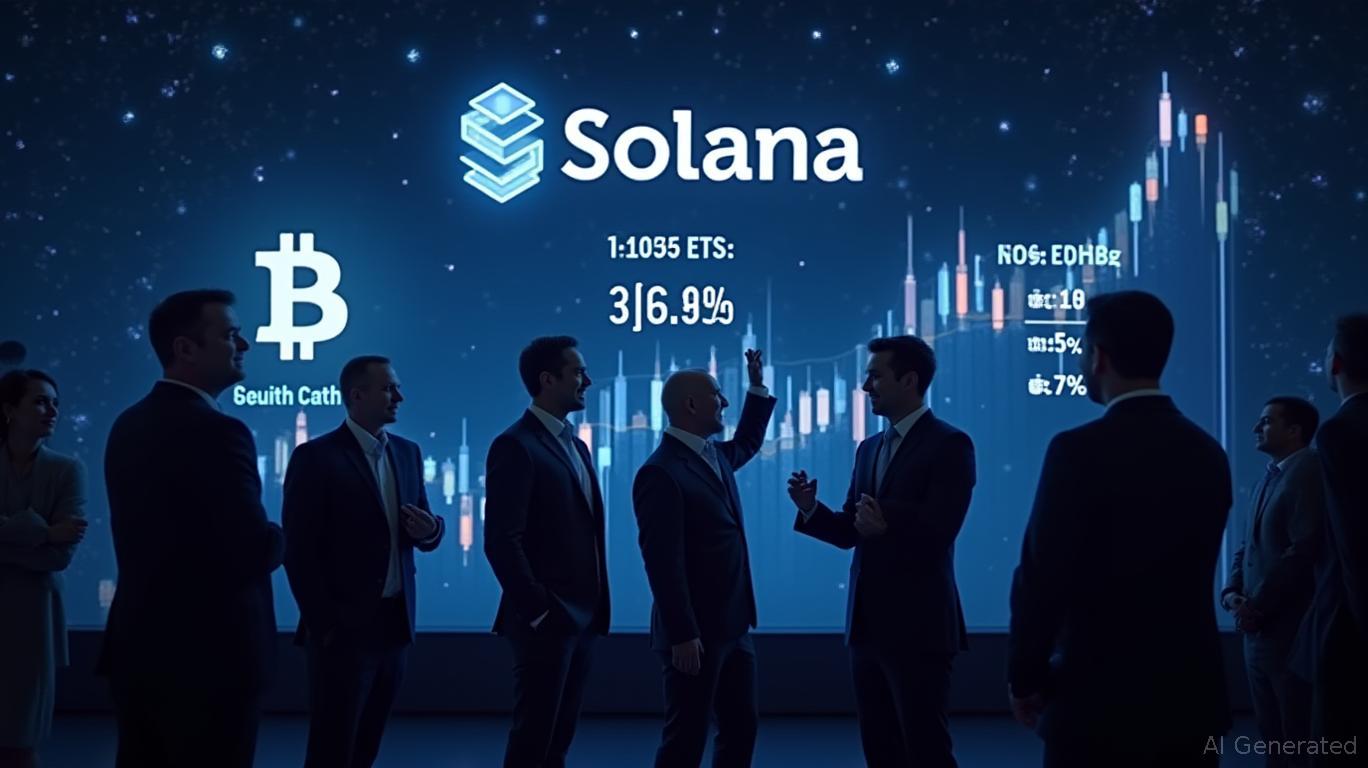Families Confront an Unbearable Winter Dilemma: Go Hungry or Freeze as the Shutdown Continues
- 30-day U.S. government shutdown threatens food and heating aid for millions of low-income Americans. - Exhausted $6B SNAP fund risks 42M households; LIHEAP delays leave 300K Pennsylvania families without heating support. - Nonprofits like Propel offer $50 cash relief, but gaps persist as states struggle to compensate for federal shortfalls. - Bipartisan stalemate on ACA subsidies delays resolution, with Trump prioritizing military funding over social programs.
The ongoing U.S. government shutdown, now reaching its 30th day, has become a major crisis for millions of Americans with low incomes, putting essential food and heating assistance programs at risk. With federal funding halted, both the Supplemental Nutrition Assistance Program (SNAP) and the Low-Income Home Energy Assistance Program (LIHEAP) are being disrupted, forcing vulnerable families to make impossible decisions between staying warm and having enough to eat this winter
The USDA has already depleted its $6 billion SNAP emergency reserve due to the shutdown, leaving 42 million people in danger of losing their November benefits as early as Nov. 1, according to the Inquirer. At the same time,

The effects of the shutdown on heating aid are just as severe. LIHEAP, which usually provides $3.6 billion a year to help low-income households with energy bills, has been postponed until at least December 3, leaving more than 300,000 families in Pennsylvania uncertain about their winter heating,
Members of Congress from both sides have voiced concern. Republican Representative Brian Fitzpatrick called the LIHEAP delay "unacceptable" and urged Health Secretary Robert F. Kennedy Jr. to use emergency powers to maintain aid, while Democratic Representative Madeleine Dean criticized the Trump administration's "cuts" and the shutdown's heavy toll on marginalized groups. However, with both parties at an impasse over the extension of Affordable Care Act tax credits, a solution remains out of reach.
The wider shutdown has also affected Head Start programs, air traffic control, and national parks, but the urgent need for food and heating assistance is especially critical as winter nears,
As the situation worsens, nonprofits and state agencies are working urgently to address the gaps. Pennsylvania Human Services Secretary Val Arkoosh noted the state's limited ability to make up for lost federal funding, while groups like GiveDirectly are teaming up with Propel to provide immediate cash support, and state programs can only offer short-term relief for many families.
---
Disclaimer: The content of this article solely reflects the author's opinion and does not represent the platform in any capacity. This article is not intended to serve as a reference for making investment decisions.
You may also like
Bitcoin Updates: Swiss Crypto Lending Offers 14% Returns Alongside Bank-Backed Insurance
- Swiss crypto lender Fulcrum offers 14% APR on stablecoins with Lloyd's insurance and FINMA regulation. - Platform uses 50% LTV over-collateralization and institutional-grade security to mitigate market risks. - Targets inflation-hedging investors by bridging traditional finance gaps with insured crypto yields. - Competes with alternatives like Bitget's zero-interest loans but emphasizes regulatory compliance and capital preservation.

Bitcoin News Update: Analyst Highlights How MSTR's Convertible Bonds Prevent Forced Bitcoin Sales
- MSTR's convertible debt structure allows debt repayment via cash, stock, or both, avoiding Bitcoin sales during market downturns. - The company raised €350M through a 10% dividend-bearing euro-denominated preferred stock offering to fund Bitcoin purchases. - Q3 results showed $3.9B operating income from Bitcoin gains, driving a 7.6% stock surge to $273.68 post-earnings. - Risks persist if Bitcoin fails to rally in 2028, potentially forcing partial liquidation amid $1.01B 2027 debt obligations. - MSTR hol

Solana News Today: Solana ETFs Surpass Bitcoin as Staking Returns Attract Institutional Investments
- U.S. spot Solana ETFs (BSOL/GSOL) attracted $199M in 4 days, outperforming Bitcoin/Ethereum ETF outflows. - 7% staking yields drive institutional inflows as investors rotate capital from major crypto assets. - Despite ETF success, SOL price fell below key support levels, raising concerns about $120 price floor. - Strategic staking and treasury purchases boosted Solana's institutional appeal, with $397M in staked assets. - Market remains cautious as ETF competition intensifies, with Bitwise's BSOL outpaci

Bitcoin News Today: Bitcoin’s Fourth Quarter Surge: Impact of Trade Disputes, Stronger Dollar, and Evolving Global Economic Strategies
- Bitcoin fell nearly 15% in October 2024, its worst quarterly start since 2022, driven by U.S.-China trade tensions, dollar strength, and macroeconomic caution. - A 100% U.S. tariff on Chinese imports and Fed rate-cut delays exacerbated selloffs, triggering $1.3B in liquidations during a flash crash below $103,000. - Key support levels at $107,000 and $101,150 face retests as traders warn of further declines, with market cap dropping below $3.6T amid fragile liquidity. - Wintermute denied Binance lawsuit
